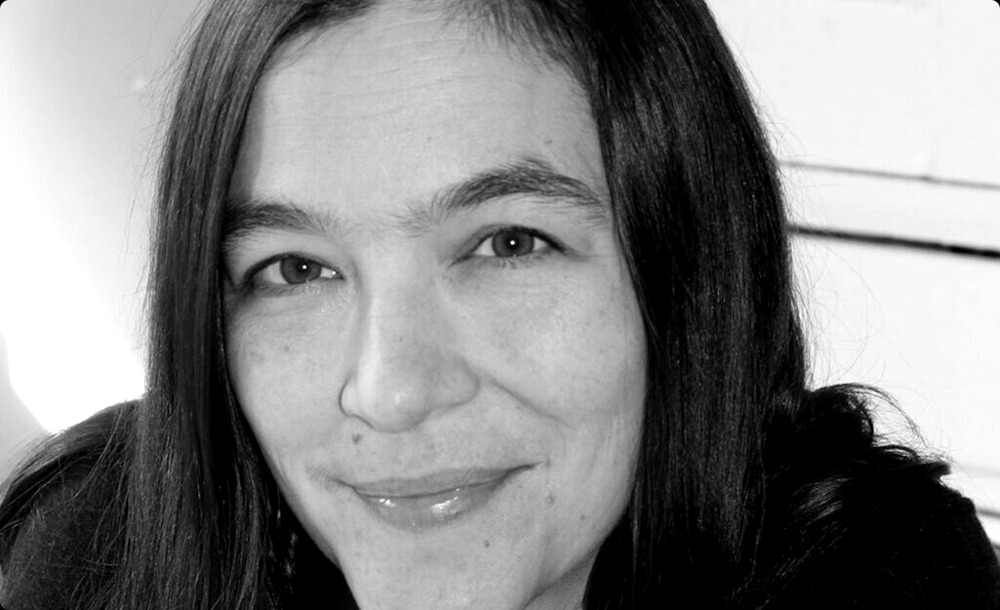
‘In a station of the vortex pick me up and hurl me’ writes Joyelle McSweeney in the poem ‘Oocyte’, appearing in their celebrated collection Toxicon and Arachne (Nightboat Books, 2020). In this heady exchange of ideas, the author of ten books (poetry, fiction, drama, non-fiction, translation) reveals a formidable erudition swirls through the heartlands of their elemental writing. This interview ranges over affect, ethics, utility, and community, and McSweeney’s responses to Dan Disney’s questions are as if still points in the moving eye of a storm, or anthropocentric compass, or image-haunted mind.
Dan Disney: Hello Joyelle, most importantly, sincerest possible thanks for agreeing to conduct this interview; I’m extremely grateful for your time (of which I will try not to steal too much) and am so pleased to be in contact. Again: thank you for being available to answer these questions!
Noting, with warm congratulations, that you have received this year’s Shelley Memorial Award, I wonder if I can cite from judge Calvin Bedient’s comments: they assert that Toxicon and Arachne ‘tightens up formally against invasive things, everything toxic, corrupting, spoiling, devastating … [McSweeney is] alert to every bullying thing’.
If, after Walter Benjamin’s famous chiasmus, we must respond to the aestheticisation of politics with the politicisation of our art, can I ask about your ethics? Broadly speaking, which energies / impulses underwrite your creative and critical contributions?
Joyelle McSweeney: I believe art has and should have force, but that force could be infinitesimally large or infinitesimally small – either can disrupt the universe.
On a personal level I strive to be something completely unabsorbable, that lodges in and inflames the tissues in which it lodges – a fatal splinter, a fatal flaw, a grain of poison, viral DNA. As a publisher I want to load the corpuscle with so much unlikeness that it capsizes in the vein and changes the blood.
I think of the vibrations of the porn actor Pajarito in Roberto Bolaño’s short story, ‘The Prefiguration of Lalo Cura’: ‘Back then you weren’t afraid – you moved so fast that only little creatures and fetuses could see you moving. Only cockroaches, nits, lice, and fetuses’. And I think, oppositely, of Raúl Zurita’s skywriting, his maxim on art: After the coup, we have to make art with the force of the coup.
Such contradictions define Art – simultaneously as small as the eye spots of nits, lice, fetuses, as big as the militarised sky, as small as a neutrino, as large as the Big Bang. Such contradiction releases a pulse, releases energy. That energy is Art’s force.
DD: When turning the gaze toward your work, I am struck by the sheer verbal force of your creatively deployed language, which seems as if seamlessly preternatural and yet startlingly hyper-modern, as if it has always been in (or waiting for) the syntactical units in which we find it. The sheer arresting power of lines such as ‘The bruisey weeds in the garden / ungoogleable / and eyeless, closed around their seedy code / nearby and remote as on the edge / of the galaxy’ (‘Morning Wants an Eidolon’) or, elsewhere, ‘[t]he joystick’d boys sink arrows into the ozone. / If we can’t have bees we’ll have drones’ (‘Oocyte’) compel immediate re-reading. Can you illumine your creative processes: by which methodological means does syntax like this arrive?
JM: My method is to ride the black skirt of sound as it curves in vantablackness. Its signs, its sins, its sinuses, its sines.
To dilate on this topic: sound is moving past and through us and, as language, carries with it the newness of inflection and the history of where it’s been. Etymology is my favourite form of divination, a scrying–an occult, possibly fictive arrangement of language to scrutinise for what it tells us about the past and future. What I call ‘hyperdiction’ bears the imprint of empires, histories, accidents and conflicts, as well as the svelteness of novelty shuddering into being. I want my language to be oddly familiar even as it morphs into something not quite ever heard before, even as it elapses, even after it’s gone.









